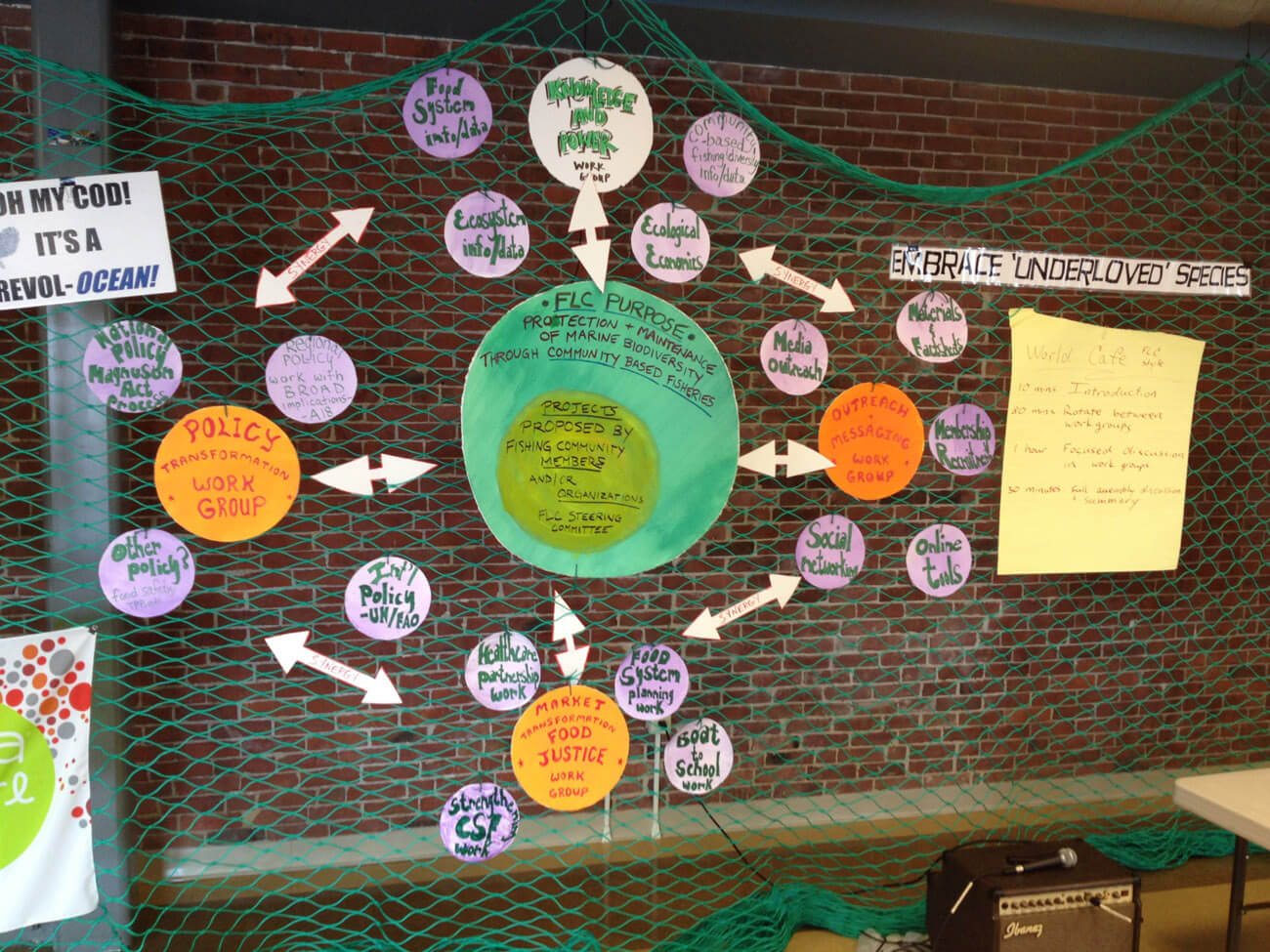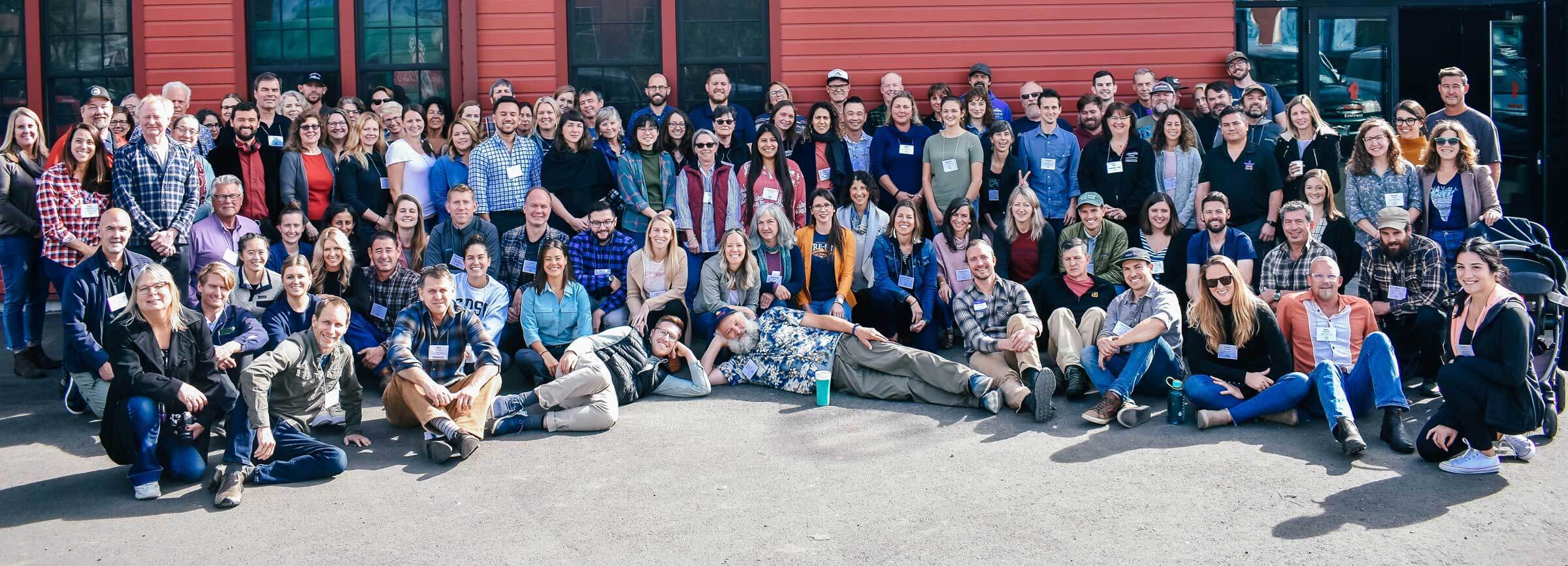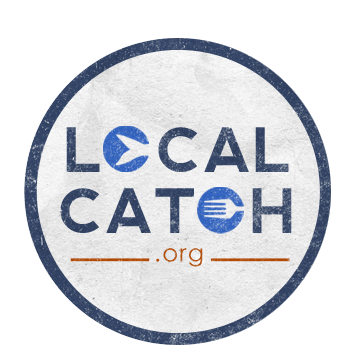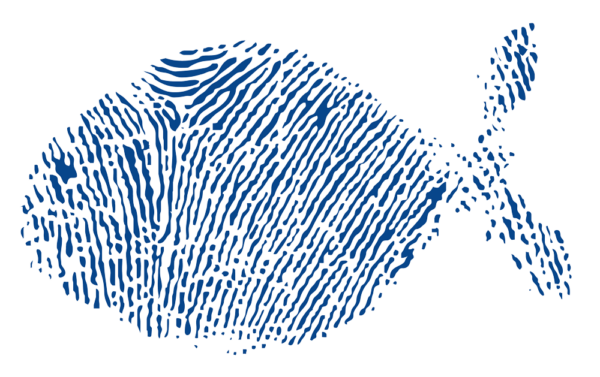Supporting the Movement
Movement-building plays a crucial role in NAMA’s work. We firmly recognize we can’t win this fight alone. By working with the organizations and people inside our networks, our movement connects 500,000+ fishing families, food justice champions, scientists, economists – and many more who share our values and goals. As part of this broad movement, the tentacles of our work reach a lot further and we can better protect the most vulnerable amongst us while empowering everyone. Through our ongoing collaboration with the Fish Locally Collaborative, the Local Catch Network, Slow Fish, and the World Forum of Fisher Peoples, we are creating a sea of change.
Share this post

Fish Locally Collaborative
Made of over 60 organizations plus community-based fishermen, seafood processors, marine biologists, fisheries advocates, and others throughout North America, the Fish Locally Collaborative (FLC) is a decentralized diverse network of people working toward the shared goal of uplifting community-based fisheries. Any person, group, or community within the FLC can tap the Collaborative to connect with the right people, align around values, form a team, chart a course of action, and work together toward achieving common goals, fulfilling needs, and meeting opportunities.
The FLC responds to urgent, timely matters while also working the long game of movement-building. Over the years, it has seen many victories. It was instrumental in connecting the Real Food Challenge with community-based fishermen and seafood processors to create a seafood guide for universities around the nation. That guide has helped shift sizable seafood dollars toward community-based fisheries. The FLC has also amplified fishermen’s stories to local and national media. Plus the FLC provided the incubation and organizing space for both the Local Catch Network as well as the Slow Fish Network to grow and thrive. Currently, the FLC is organizing reform to the federal Catch Share policy and developing a collective vision for values-based aquaculture.


Local Catch Network
Local Catch Network (LCN) is a community of practice made up of fishermen, organizers, researchers, and seafood eaters and enthusiasts from across North America. Together, the members are committed to providing local, healthful, low-impact, and economically sustainable seafood through Community-Supported Fisheries and other values-based seafood businesses. The network is made up of more than 500 members, including 200+ seafood businesses from across North America. LCN members include fishermen who sell their catch locally and regionally through alternative models and members engaged in research, technical assistance, and community organizing. NAMA has been part of LCN’s leadership since its inception and provides backbone support while also serving on the Executive Committee. LCN has become the go-to hub for people seeking locally sourced, values-based seafood in the US and beyond. Recognized as the leading expert in Community Supported Fisheries by the European Union, with support from URGENCI, LCN is working in collaboration with allies in Turkey, France, and the Netherlands to create a sister-network in Europe.


Slow Fish
Slow Fish is an international campaign and series of events that brings together community-based fishermen with chefs, youth, farmers, and seafood eaters. Through its gatherings, workshops and webinars, Slow Fish aims to turn the tide away from industrial fisheries and toward seafood that is good, clean, and fair for all. Its guiding principle is the Blue Commons, which states that marine resources should be shared and freely available within a community, as opposed to the Blue Economy notion that dictates the ocean and its resources should be owned by private companies.
NAMA has served among the leadership of Slow Fish since the beginning and helped launch Slow Fish USA in 2013. Since then, NAMA and Slow Fish have collaborated closely on many fronts, such as organizing, policy work, and coordinating and planning epic gatherings. Slow Fish workshops have been key to the success of NAMA’s Boat-to-Institution work, which has helped redirect millions in seafood dollars to community-based fishermen and away from mega-corporations. Together, NAMA and Slow Fish, working closely with Real Food Challenge, introduced the University of New Hampshire to Slow Fish Principles to guide their seafood purchasing. Within one semester, UNH had purchased over 2,000 lbs. of locally-abundant, underused species for their dining hall. Since then, students at multiple universities have held Slow Fish events, including at the University of Rhode Island, Northeastern University, College of the Atlantic, and University of Vermont.
Our movement is even bigger than the FLC, LCN, and Slow Fish and includes other allies, networks and coalitions, like the National Family Farm Coalition, the New Economy Coalition, and more. For a full list of who makes up our movement, visit our allies and partners.
World Forum of Fisher Peoples
Founded in 1997 in New Delhi, India, the World Forum of Fisher Peoples (WFFP) is a global movement that unites small-scale fishing communities from across the world. WFFP was born out of the need to address and protect the rights and livelihoods of fishers and their communities amidst growing threats from habitat destruction, overfishing by enormous fleets, expansion of industrial aquaculture, and fossil-fuel drilling and encroachment.
Over the years, WFFP has expanded its mission to include tackling climate change and advocating for the rights of more than 10 million fisher people from 23 countries. Their work is vital to ensuring fishers have a say in protecting their livelihoods, managing fisheries, and preserving ocean biodiversity.
NAMA has a deep-rooted history with WFFP, which began with our coordinating director, Niaz Dorry, who was involved with the organization from its earliest days. Niaz was working at Greenpeace when WFFP formed, and she was introduced to the organization by two veteran fisheries activists.

In Maine from R to L: Father Kocherry, Harekrishna Debnath, Niaz Dorry, and guest
Niaz attended the organization’s inaugural gathering in 1997 in New Delhi, where she first met two of the founders, Father Thomas Kocherry and Harekrishna Debnath. A few years later, she hosted them on a speaking tour across the U.S. to raise awareness about the plight of small-scale fishers everywhere.
In 2006, NAMA raised resources for and distributed them to Southeast Asian communities impacted by the tsunami, to support the National Fisheries Solidarity Organization (NAFSO) of Sri Lanka, a WFFP member organization.
NAMA’s connection with WFFP deepened further when Brett Tolley, our program director, gave testimony at the United Nations in June 2017 on behalf of small-scale fishers everywhere. A few months later, he attended the organization's General Assembly 7 in New Delhi.
In 2021, NAMA became an official member of the World Forum of Fisher Peoples. While NAMA is rooted in North America, we're part of a global movement of fishers, taking our cues from WFFP on how we show up and participate. Fisher peoples everywhere, including our communities in North America, are united in our struggles against corporate domination, systemic oppression, and ecological collapse. We are also bound together by our victories.
Recently, WFFP held its General Assembly 8 (GA8) in Brasília, Brazil, in November 2024, where NAMA was among the members in attendance.
